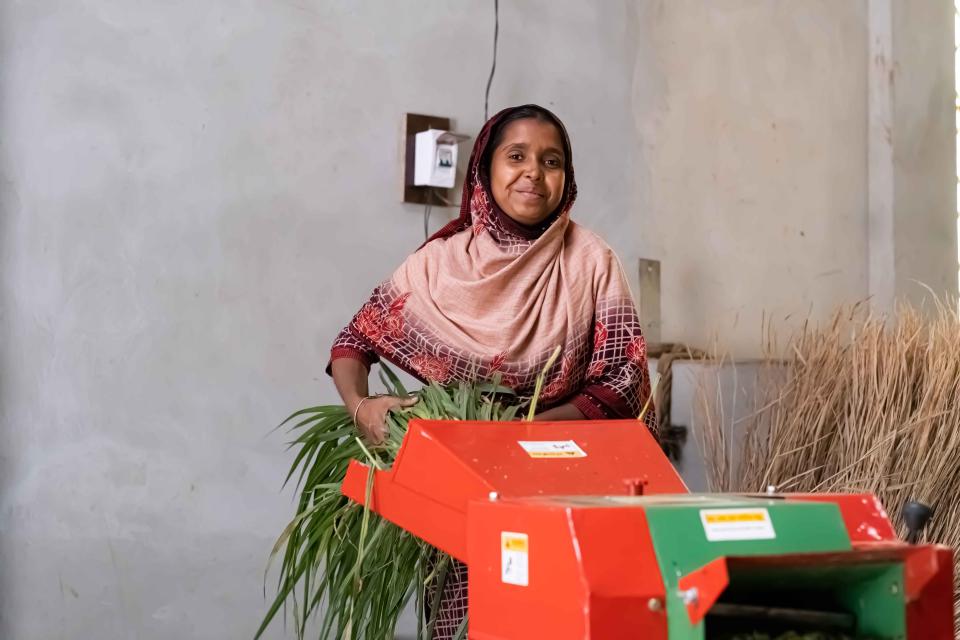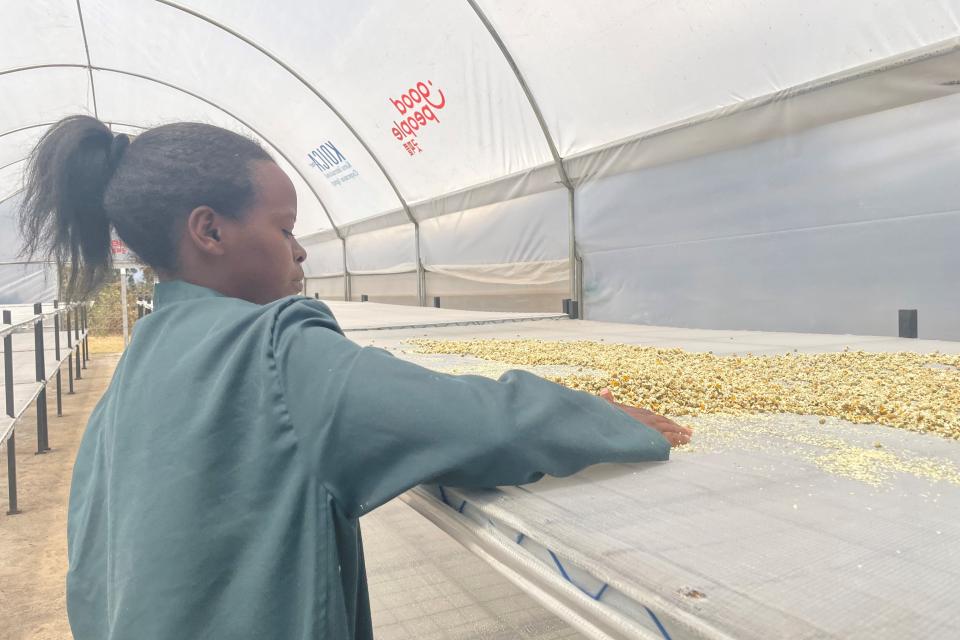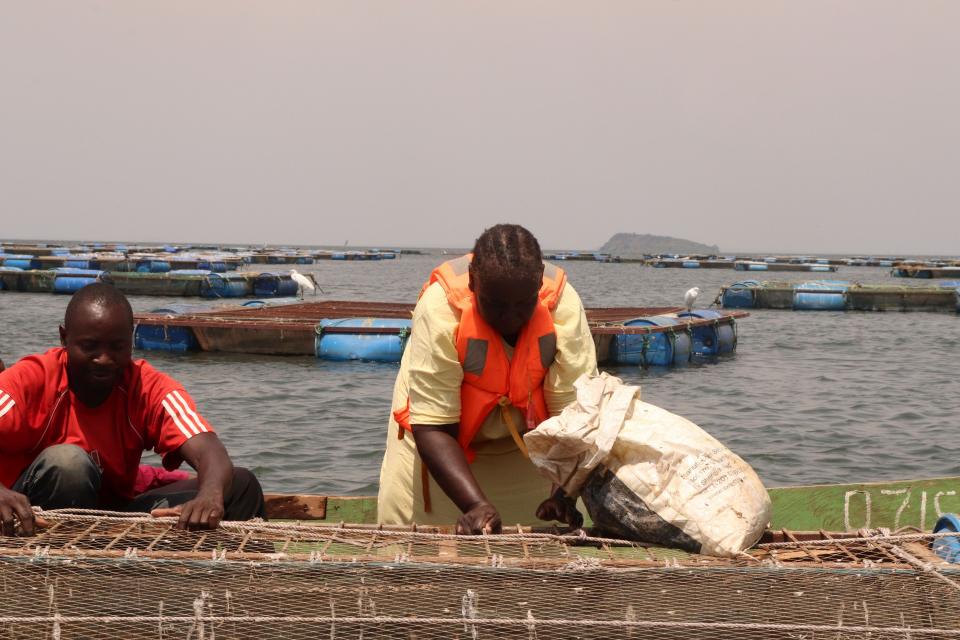Seed spreaders help women farmers in Tunisia
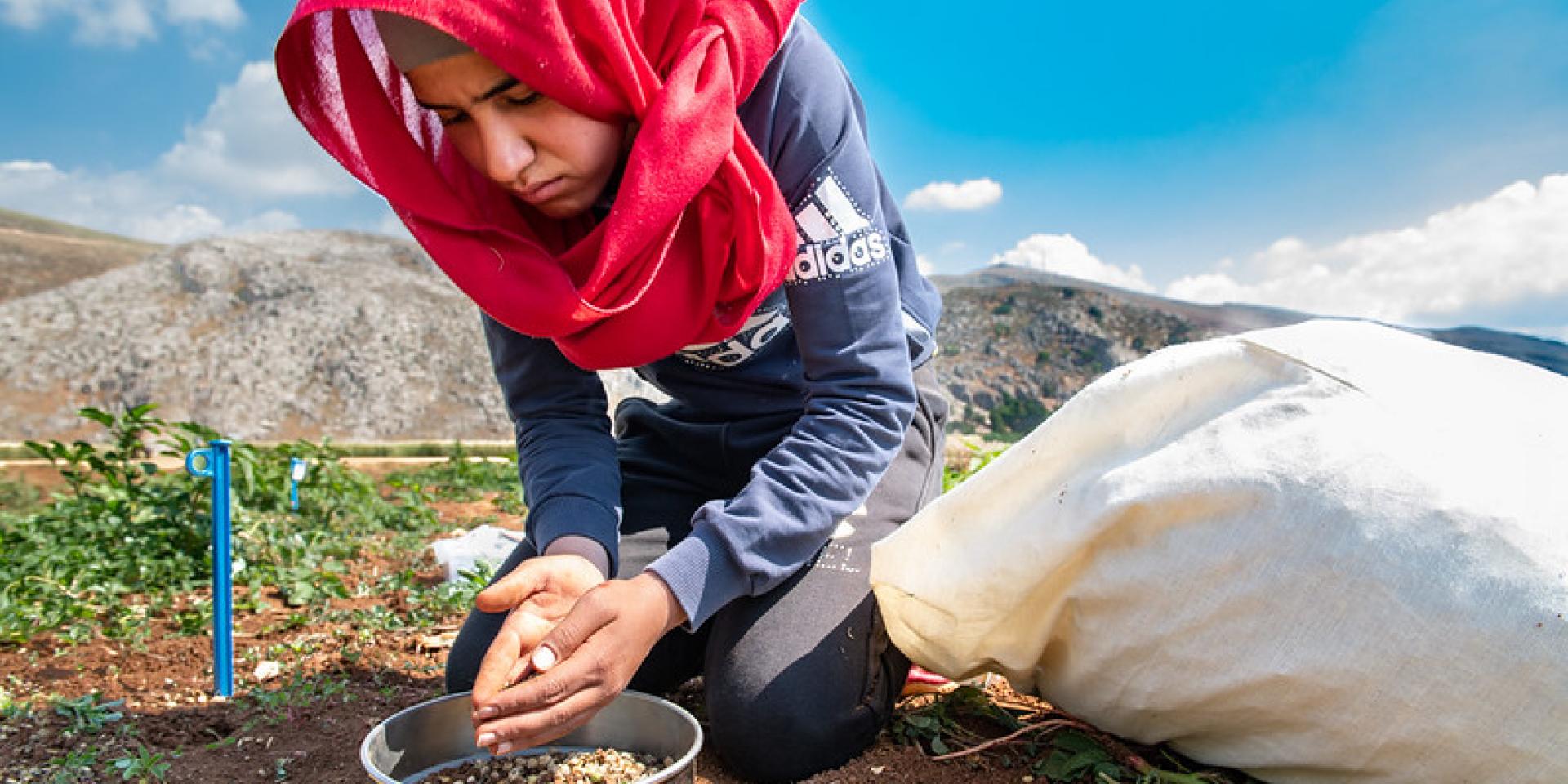 Photo: Michael Major/Crop Trust
Photo: Michael Major/Crop Trust
In early 2023, the CGIAR GENDER Impact Platform ran a series of virtual training modules for science communicators on how to develop and pitch stories on agricultural technologies that work for women.
The story below was produced by Nada Abdelhamid as a result of this training. Enjoy!
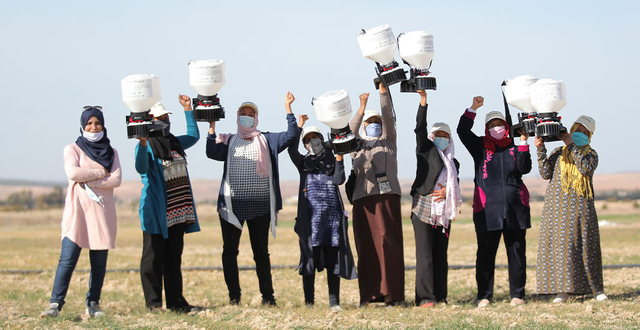
Distribution of hand-held precision spreaders by CLCA INRAT-OEP-ICARDA staff to women farmers from the forage knowledge hub in Tunisia. Photo: ICARDA.
A new handheld seeding device unlocks new opportunities for women farmers in Tunisia.
Male farmers typically have larger plots of land and can use big machines, but this technology is not available to women who typically work on smaller land areas.
Dr. Aymen Frija, a senior Agricultural Economist with the International Center for Agricultural Research in the Dry Areas (ICARDA), said his organization provided women farmer cooperatives in Tunisia with handheld seeders and training workshops on how to use them.
The ICARDA device is a time-saving, user-friendly, and cost-efficient innovation that lowers seed and fertilizer waste. The Handheld Precision Spreader (HPS) has a seeds container and an adjustable opening that pre-sets the amount of spread material. A spinner fastened to its side drives a spinning disc at the bottom.
Compared to manual broadcasting, the HPS produces 20% higher biomass yields in forage crops because it evenly distributes seeds and fertilizers.
Another benefit of this method is that farmers can apply chemical fertilizers without coming into contact with the product on their skin, which lowers health risks. Farmers claimed the device is simple to use, cutting labor expenses by 40%.
Farmers have welcomed the new seeder.
“I am a farmer, but before receiving the seeder and training, I never cultivated my land myself. I would typically hire a man to do it for me. I like this small machine a lot!” says Ayda Aguil, a woman farmer.
“Our evaluations have demonstrated that they helped generate additional income and reduced some heavy workloads. We also helped to stimulate further demand for these machines, which may support agricultural modernization, especially in small-scale farming,” says Dr. Frija.
Dr. Dina Najjar, Senior Gender Scientist ICARDA, says that women work a triple day: at home, at work, and with the community.
“We should consider workload reduction and their invisible roles to be validated and supported. Without women, our farming systems would break down.”
Lazher Bouzayen, a male farmer from Tunisia, agrees with Dr. Najjar’s assessment.
“Without women farmers, a man cannot do anything: he won’t raise sheep or cows, he won’t grow cereals, nor plant olive trees,” he says.
Although the new Tunisian constitution upholds women’s equality and protection, gender disparities in extension programs endure, and inequalities still exist. Especially in rural areas, women continue to be marginalized and have limited access to new farming knowledge, techniques, and technology.
In Northwest Tunisia, mixed crop-livestock small land plots are predominantly owned by women farmers. However, big machinery – typically used by men and on larger land sizes – does not function on small, uneven scattered land plots.
Women farmers either cannot act independently or have to disseminate seeds and fertilizers manually, which adds to their already laborsome days. Furthermore, hand broadcasting does not ensure an even distribution, and many seeds and fertilizers are wasted.
This gender-responsive small machine enables women to efficiently sow seeds in their fields without too much physical effort. They no longer have to recruit male labor or deal with the consequences of delayed sowing.
Moreover, the initiative is rebalancing the relationship between female cooperative members and service providers, particularly extension officers and seed and machinery providers.
It recalibrates women’s participation and engagement in agricultural projects. It is deliberately inclusive and fosters women as active agents of change.
Disclaimer: This story has not been reviewed by the CGIAR GENDER Impact Platform; the views expressed here are those of the author(s) and do not necessarily reflect the views of the Platform.
